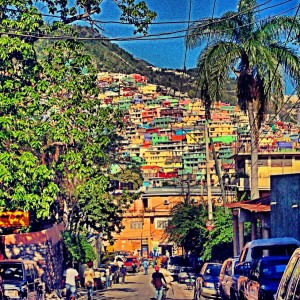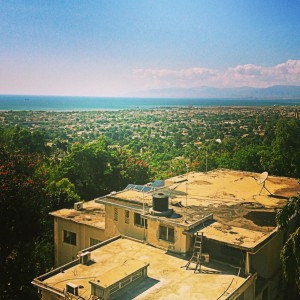Last weekend, I was in Haiti. The organization JCI sent me down there so I could learn about one of their projects: A community center for Haitian youth. I only spent four days in the country, but they were full of meetings and conversations and discussions, and I came away with the sense that the JCI community center is exactly what sustainable development is supposed to look like.
First, a note on why I’m covering this, and the interests and ethics involved. Trips to send bloggers, journalists and other writers and media “influencers” to various parts of the world to cover important issues are now standard practice. Even though I’m a blogger and an opinion writer with a clear point of view — not a journalist attempting to be unbiased — there are issues of transparency and the line between opinion journalism and being the paid mouthpiece for an organization. So I think it’s important to disclose when I’m posting something for an organization that has me on their payroll. JCI does not. However, JCI did pay for me to fly to Haiti, and for my hotel. They sent me down to Haiti obviously with the hope that I would write about the center and be an advocate for their cause. I will say that if I thought the center wasn’t worthwhile, or if I had doubts about it, I would either not cover it or would express those. Where I do feel a bit… hesitant… is with the issues I’m presenting here: The necessity for writers, even opinion journalists, to disclose the arrangements that put them in a position to cover a certain issue, and the unspoken (or sometimes spoken) expectations for coverage. I am writing about this now, after the trip, because I was impressed by the people I met in Haiti and with their plan for the center. But I want to be accountable to the readership here, and be clear that this is a story I was sent to gather information on.
Haiti has a lot of problems. You see them detailed on CNN, in the New York Times, in nearly every Western media outlet: Endemic poverty, corruption, sanitation challenges. When you see white people in Haiti, they are more often than not self-appointed “helpers” of some kind: NGO workers, missionaries. I was told many times over that NGOs are wildly unpopular, mostly because they swoop in with their own ideas about how to fix the country and don’t help to create long-term citizen-led solutions.

Which doesn’t mean that NGOs don’t do good work — many of them do. Much of their work is invaluable, especially in the immediate aftermath of a crisis or natural disaster, when local organizations and processes are in disarray. But the earthquake in Haiti was three years ago, and people are still living in tent encampments. Handing out bottles of clean water is great, but it’s not a long-term investment.
JCI is basically an international junior chamber of commerce organization, with hundreds of chapters all over the world. Their meeting space, like many buildings in Port-au-Prince, was destroyed in the earthquake. For months after the quake, they met in an empty lot under a tent. They spent three months strategizing how best to serve their community after the disaster.
“Could we do a humanitarian action? Yes,” said Guillaume, a JCI member. “But we had to something sustainable. We came up with this project. We could build this center and then young people will change this country.”

The idea is simple: A youth center with space for meetings, consistent electricity, a library, internet access, and a basic sports facility for basketball. The center will host trainings for young people, focused on things like leadership, conflict resolution, and practical job skills. Perhaps most importantly, it will be a new building going up in Port-au-Prince, when so much else has fallen down. It’s a symbol of hope, and a model for other organizations.
“When you come next then you will see what Haitians can do,” said Joel Loriquet, a local business owner and JCI partner. “We have weak means, but great ideas. So we need to make the means come.”
To raise funds, JCI is soliciting businesses and individuals for donations. They bought properly-titled land to build the center on — not an easy task in Haiti — and now are fundraising for the actual construction. They estimate it’ll take $400,000 to build the center, of which they’ve raised $100,000.
Nearly everyone I talked to had overlapping visions and ideas for the center. Some emphasized the importance of education, research, libraries and internet access; others job training; others athletic facilities to keep kids off the street; others leadership development; and others anti-violence actions.
“The power of a nation is in the education,” the vice president of JCI Women Sandra Rabrun Rosefort told me. “That’s it. If we have a center that helps other people to learn something for themselves, they will progress from one point to another. For us, this is a huge level and we are so happy we can have this center. This center will give young people the choice to do something good – something different – and build the future they want.”

There’s more information about the center here. And the trip brought up a lot of fascinating topics — development, women in Haiti, youth activism. I’ll be writing about those in the coming days.